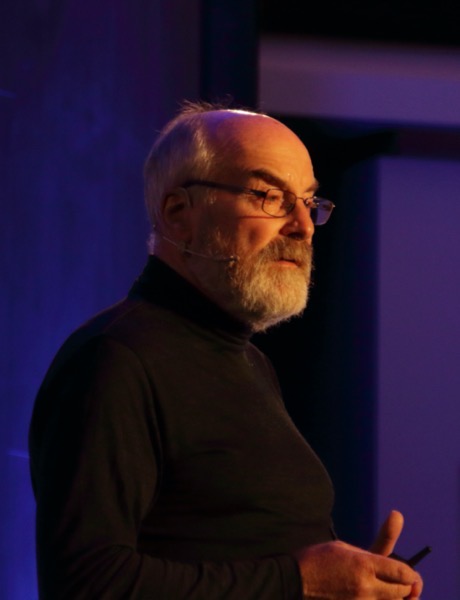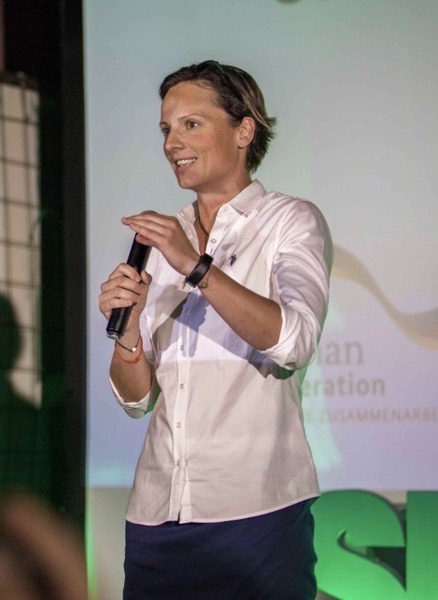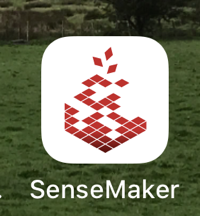Menu


 This blog post is written by Dave Snowden (the Cynefin Centre) and Millie Begovic (UNDP) to launch a critical experiment in learning and understanding the evolving implications of the pandemic – to which we invite your participation. The resulting data will be used to better understand how to globally scale this distributed capture and further generate partnerships for policy work and investment.
This blog post is written by Dave Snowden (the Cynefin Centre) and Millie Begovic (UNDP) to launch a critical experiment in learning and understanding the evolving implications of the pandemic – to which we invite your participation. The resulting data will be used to better understand how to globally scale this distributed capture and further generate partnerships for policy work and investment.
We are living through what Dan Hill aptly termed ‘an A/B test on our way of life,’ – worlds as pre (A) and post (B) Corona. At no other time in human history has there been a mandated containment of over 4 billion people to their homes, with accompanying, and still playing out, socio-economic, political, psychological and other unknown implications. ‘Flattening the curve’ plays out differently in different contexts; some countries have strong institutions, relative trust of their citizens, are able to marry science, pragmatism and context, and have a fiscal space to plug lost income and health. And some countries do not (India’s 21 day lockdown in comparison to the Danish response is a stark example).
On an individual level this translates into a massive diversity of experiences. Through this study we would like to focus on the implications of the current crisis on emerging new practices, and behaviours and values that drive learning, innovation and work to potentially build a new future.
There is no comparative case on a similar scale or scope that we can look to for guidance. Instead, we are relying on over a decade of experience in practicing complexity science and establishing projects all over the world in Government, business, academia, policy, the development sector, and beyond.
What we often see in a crisis is a lack of sufficient cognitive, political, and experiential diversity in assessing the implications of the crisis, which can undermine our ability to make good decisions. For example, there is often a bias towards well-polished analysis that, by its nature, can only ensue after something has happened. This polished analysis drowns out outliers in the hope of finding significance. On the other hand, this approach can be used to monitor the ebb and flow of data in real-time, outliers are seen as potential signals to explore rather than inconvenient data points to remove, and the raw, unprocessed, and disintermediated data is kept in its original form for as long as possible in order to hold on to its meaning (UNDP’s Regional Innovation Center is diving into capturing exactly this type of data with partners from Governments in Asia Pacific). This framework offers a coherent mechanism to ‘entangle’ stories from different sources (policy makers, citizens) and identify seeds of novel practices and learning as they happen.
Some interesting questions that come out of this line of thinking to consider as we move forward in this endeavour are:
We will deploy a rapid daily journal to collect experiences of professionals around the world to begin understanding what learnings are emerging. This might take 5-6 minutes of your time each day.
If you want to take part in this then please register by filling out this form and you will get a full invitation at the end of the week.
 In the meantime, you can download the SenseMaker® app on the iOS App Store or Google Play Store and key in the framework code ResilienceJournal (case sensitive) to get familiar with the SenseMaker® environment.
In the meantime, you can download the SenseMaker® app on the iOS App Store or Google Play Store and key in the framework code ResilienceJournal (case sensitive) to get familiar with the SenseMaker® environment.
This is an open system and will not track data by individuals (that is for next week and you will get instructions). The various demographic questions will also be removed in a few days as, upon registration, you will be able to automatically store these details against your account.
If you prefer to use a desktop, laptop, or tablet browser, you can access it here but please note that, unlike the app, photographs and voice files are not possible via web capture.
One of our network members has created a downloadable guide to using the journal, or you can watch our short video tutorial.
The intention is not to be extractive – but to continually reflect back the emerging patterns and insights to strengthen our collective experience in managing COVID-19 and potentially showcase weak signals of new practices. On the basis of data coming through, we will run an open online call to share what is emerging and source feedback on how to improve and iterate the framework to make it more effective in moving forward.
You will also be invited to take part in two mass sensing opportunities on post-pandemic futures and ethical issues surrounding triage.
To view a list of all our existing programmes, click HERE. Expect substantial updates to this throughout the week as new activities come online or are available
If you require information on data privacy, you may refer to our Privacy Policy, or email info@cognitive-edge.com. As this is the trial phase of a wider journaling exercise, the option to specify ‘Other Industry’, ‘Other Role’ and ‘Other Sector’ and other multiple-choice questions in an additional text field is currently unavailable.
Journal based learning systems are also being created for medical workers, families, and government employees in lockdown. To hear about the Welsh Audit office work here you can listen to the recording here [link awaited] and use the contact point above to tell us if you are interested.
Banner picture of handwashing by Christine Sandu on Unsplash Material in this application is Copyright © 2020 Cognitive Edge Pte Ltd All Rights Reserved. Protected in part by copyright, patent and trademark and other law
Cognitive Edge Ltd. & Cognitive Edge Pte. trading as The Cynefin Company and The Cynefin Centre.
© COPYRIGHT 2024

I love this cartoon by Shannon Wheeler, that was posted by the New Yorker. When ...
Three weeks ago, my uncle died from COVID-19. He was a second uncle and I ...